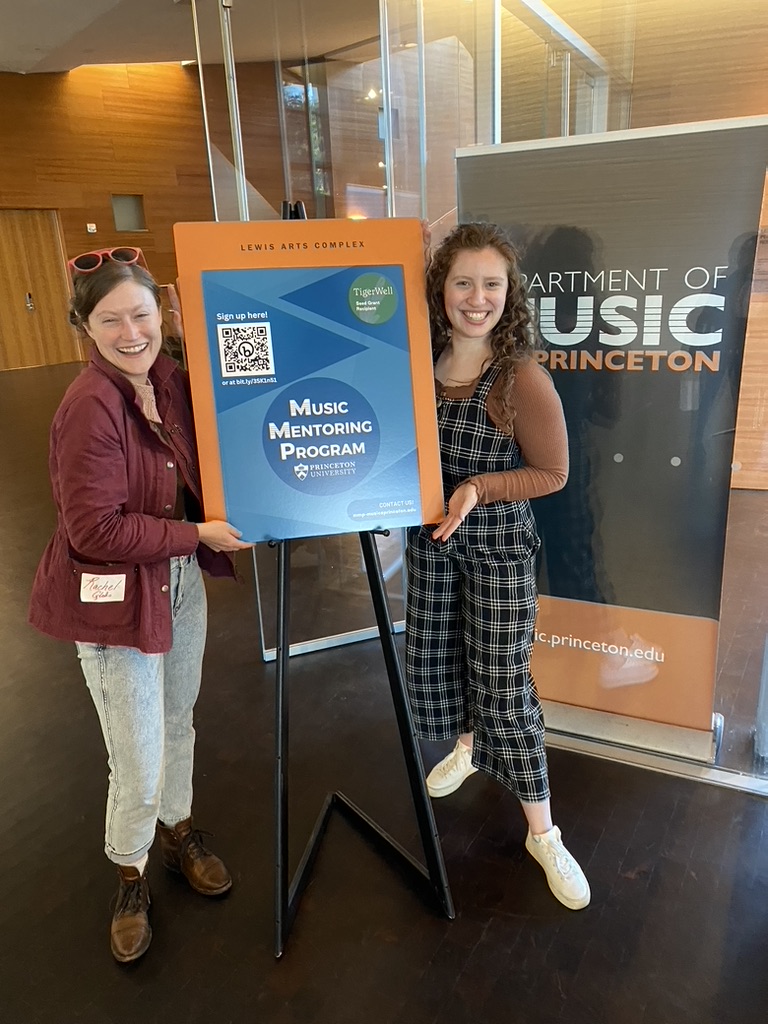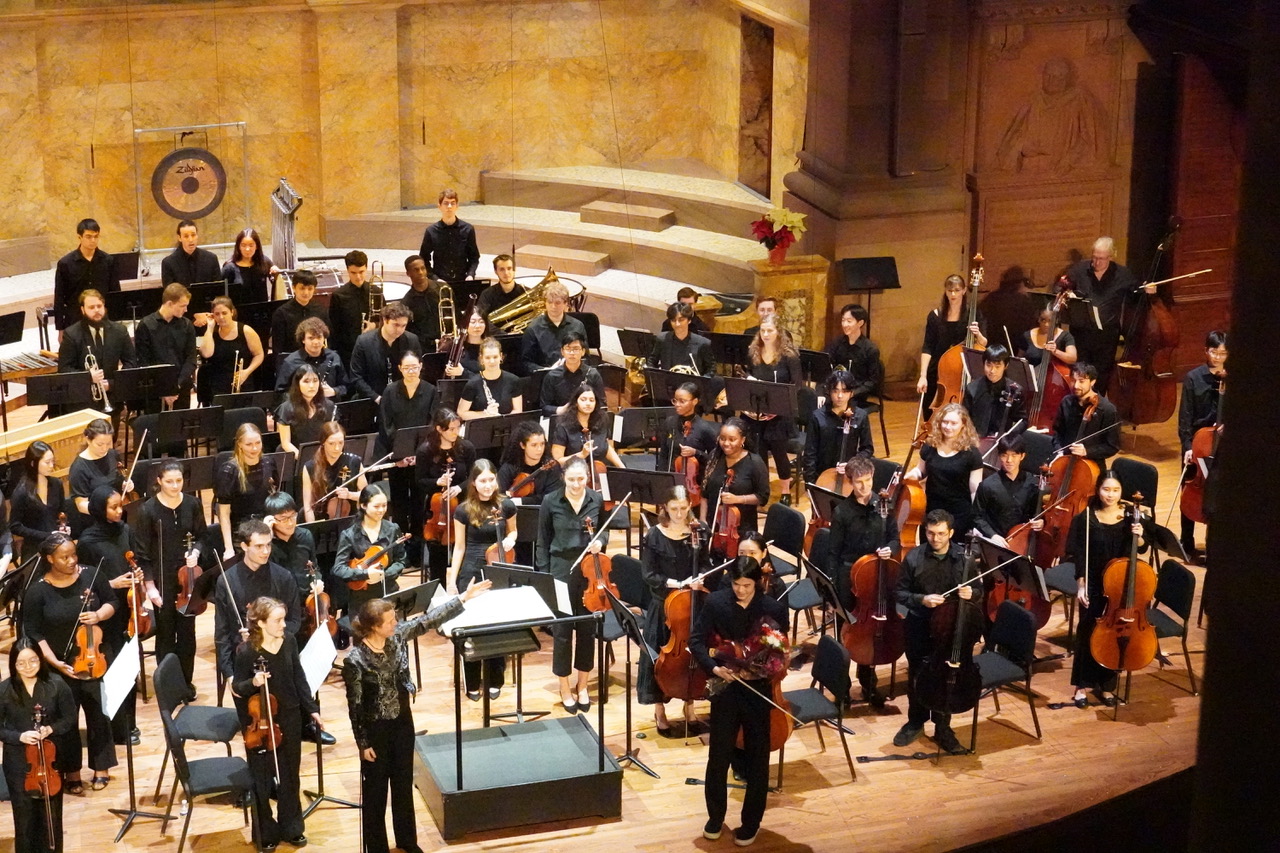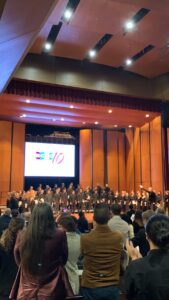Adrian P. Thananopavarn ’24, Math major with certificates in Computer Science and Music Composition, premieres “March of Dusk” with Princeton University Sinfonia
By: Chloe Yutong Yang ’26
Have you ever had a melody stuck in your head? Adrian P. Thananopavarn, Princeton senior behind the world premiere of March of Dusk performed by Princeton University’s Sinfonia on December 10, 2023, knows that feeling all too well. While most of us may have bopped along to a catchy tune for a few days, Thananopavarn turned that head-nodding experience into a standout achievement in his college journey. But crafting this enchanting piece? That took years of dedication.
A Math major juggling certificates in Computer Science and Music Composition, Thananopavarn has been playing the viola and violin since the age of five. The piano entered the scene a bit more casually, about four or five years ago.
The competition for ensemble spots at Princeton is competitive, yet under the baton of Dr. Ruth Ochs, conductor of Sinfonia, the experience has been both invigorating and enjoyable. Thananopavarn notes, “Ruth gets it — students have a lot on their plates. We need time to unwind outside our studies, and that includes diving into the world of music.”
Beyond the sheet music, Thananopavarn is a gamer at heart, hooked on video game tunes and movie soundtracks. Armed with a diverse musical toolkit, he began following his instincts to play what he wanted back in high school. The revelation struck in seventh grade when he downloaded MuseScore, translating the melodies echoing in his head into actual music. “I thought, hey, this is music. I’m creating music,” he marveled.
The piano became his ally, a tool for musical improvisation. Whenever he hit a creative roadblock, he’d sit at the piano, letting the music flow. This technique proved invaluable in the creation of March of Dusk.
The composition itself weaves through melodic, slow, and flowing passages, conjuring images of nighttime. Thananopavarn reveals the inspiration for the title, “Princeton always feels like dusk; I leave class, and it’s dusk. I wake up on the weekend, and it’s dusk again. Annoying? Maybe. But even in the cold and dark, there’s always something to appreciate.”
The first section marches to its beat, while the subsequent ones delve into more tranquil themes. Thananopavarn cleverly reintroduces themes, ensuring the listener stays connected. His favorite part? Breathing life into each theme and playing them on loop during the creative process. Reflecting on March of Dusk, he discovered that listeners might not grasp everything on the first listen, much like a composer’s initial experience.
This past summer, facing the overwhelming array of 26 instruments on the orchestral preset of MuseScore, Thananopavarn sought guidance from Princeton graduate student Max Vinetz. Vinetz cut to the chase: “What’s your main theme?” Thananopavarn had 20 in the mix. Vinetz nudged him to choose one or two for development, emphasizing that a flood of short melodies might not stick with the listener. The revelation was liberating — no hard and fast rules in music, just guidelines to bend as he pleased.
Thananopavarn tips his hat to the viola section at Sinfonia, affectionately dubbing them the Viola Gang. “We stick together because there are fewer of us, harmonizing our way to support other sections. Violins might get a bit competitive, but not here at Sinfonia.”
Sinfonia presents their next concert on Friday, February 23, 2024 at 7:30PM in Richardson Auditorium. For more information on the program and tickets, click here.
In Other News

What Six Senior Music Majors’ Say About Their Theses
May 16, 2024
As we near the final weeks of spring semester and anticipated graduation for the Class of 2024, the Music Department asked six Senior Music Majors to expand on their creative thesis, as well as share words of encouragement to future students.

How 3 Princeton Students Spend a Monday at the Royal College of Music
Dec 7, 2023
Dorothy Junginger ’25, Kyle Tsai ’25, and Audrey Yang ’25 are currently participating in Princeton’s immersive abroad program this semester at the Royal College of Music in London.

Get to Know the Music Mentoring Program
Sep 13, 2023
Learn about the Music Mentoring Program and join their welcome event on September 14 from 5:30PM-7:30PM in the Woolworth lobby




